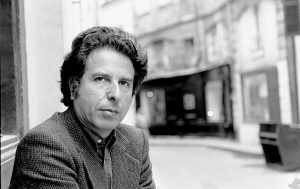It is one of the most valuable purposes of reading imaginative literature that it allows the reader to sympathize with the values of a culture different from his or her own. Having done so, memory, strengthened by the force of narrative, will also preserve those values. Peter E. Gordon therefore aptly begins his review of When Memory Comes, amemoir of historian of Nazism and the Second World War, Saul Friedlnder, by relating Canto 16 from Dante’sInferno,in which the pilgrim is beseeched by shades of the Florentine nobility to remember them once or if he makes it back up (as we know, he way overshoots the mark, landing in Paradise). For Professor Friedlnder (good name), though having managed with his family to escape Nazi persecution, nevertheless held powerfully in his conscience the tragedy which we are fortunate to learn about from the safe distance provided by the history books. Of the relationship between history and memory
Friedlnders two-volume Nazi Germany and the Jews suggests an answer to this question. Theorists of trauma have noted that first-person experience is often fractured, resistant to summary. Allowing such memories to punctuate a historical synthesis undoes the illusion of completeness; it reminds the reader that historical understanding is not just an obligation but a privilege. Historical scholarship occurs later, at a safe remove from the horrors it describes. In this crucial respect, the it was of history often differs from the I was of memory: The first integrates and promises comprehension; the second disintegrates and conveys incomprehension. The work of the historianand this is Friedlnders singular achievementis to unite these tasks so that the reader can understand, however imperfectly, experiences of trauma that would otherwise seem to surpass understanding.
The memoir closes the distance between reader and experience like the distant retelling of history cannot. Friedlander lost his parents in the camps; they succeeded in getting him to safety, and he succeeded in Proustian fashion to preserve their memory; but as his own memory fails, the least we can do is make it a part of our own by reading his memoir.
Read more at The Nation

